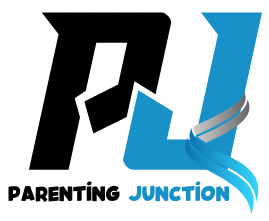Pregnancy is a remarkable and transformative journey in a woman’s life. It marks the beginning of a new chapter filled with anticipation, emotional changes, and physical adaptations as the body nurtures and supports the growth of a new life. Whether it’s a first-time pregnancy or a subsequent one, each experience is unique and brings its own set of challenges and joys.
What Is Pregnancy?
Pregnancy occurs when a sperm fertilizes an egg, which then implants in the lining of the uterus and begins to develop into an embryo and eventually a fetus. A full-term pregnancy lasts about 40 weeks from the first day of the last menstrual period and is typically divided into three trimesters, each with distinct developmental milestones.
The Three Trimesters of Pregnancy
First Trimester (Weeks 1–12)
- Physical Changes: Nausea (morning sickness), fatigue, breast tenderness, and frequent urination are common.
- Fetal Development: The embryo develops major organs, the brain and spinal cord begin to form, and by the end of the trimester, it becomes a fetus.
- Key Focus: Prenatal vitamins, especially folic acid, are essential to prevent birth defects. Early prenatal care is vital.
Second Trimester (Weeks 13–26)
- Physical Changes: Many women experience increased energy, a noticeable baby bump, and less morning sickness. Stretch marks and body aches may begin.
- Fetal Development: The baby begins to move, and organs continue to develop. The gender can usually be determined by ultrasound.
- Key Focus: Continued prenatal care, proper nutrition, and monitoring for any signs of complications.
Third Trimester (Weeks 27–40)
- Physical Changes: As the baby grows, the mother may feel more physically uncomfortable—common issues include back pain, swelling, and shortness of breath.
- Fetal Development: The baby gains weight rapidly, lungs mature, and it prepares for birth.
- Key Focus: Preparing for delivery, attending childbirth classes, and creating a birth plan.

Source: https://raisingchildren.net.au/__data/assets/image/0023/91850/Support-people-labour-and-birth-narrow.jpg
Essential Aspects of a Healthy Pregnancy
- Nutrition
A well-balanced diet rich in iron, calcium, protein, folic acid, and fiber supports both mother and baby. Staying hydrated and avoiding harmful substances (like alcohol, tobacco, and certain medications) is crucial.
- Prenatal Care
Regular check-ups help track the baby’s development and catch any potential issues early. Blood tests, ultrasounds, and screenings are common parts of prenatal care.
- Exercise
With a healthcare provider’s guidance, regular light exercise—such as walking, prenatal yoga, or swimming—can improve circulation, boost mood, and ease some pregnancy discomforts.
- Emotional Well-being
Pregnancy can bring a range of emotions. Hormonal changes, lifestyle shifts, and anticipation can all contribute to stress or anxiety. Support from family, friends, or counselors can make a big difference.
Common Pregnancy Symptoms
- Nausea and vomiting
- Fatigue
- Mood swings
- Cravings or aversions
- Constipation and heartburn
- Frequent urination
These symptoms vary in intensity and duration and are usually manageable with lifestyle adjustments and medical advice.
Source: https://www.cedars-sinai.org/content/dam/cedars-sinai/programs-and-services/obgyn/maternity/labor-and-delivery-dt-2x.jpg
When to Seek Medical Help
While many pregnancy symptoms are normal, some signs require immediate medical attention:
- Severe abdominal pain or cramping
- Heavy bleeding
- Sudden swelling of hands or face
- Persistent headaches or blurred vision
- Decreased fetal movement in the third trimester
Preparing for Birth
As the due date approaches, consider:
- Choosing a delivery method (natural, epidural, cesarean, etc.)
- Packing a hospital bag
- Arranging childcare or home support
- Taking childbirth and newborn care classes
Final Thoughts
Pregnancy is more than a biological process—it’s a powerful and deeply personal experience. With the right care, support, and preparation, it can be a healthy and positive journey. Every expectant mother deserves compassion, information, and medical attention to ensure the best possible outcomes for herself and her baby.


